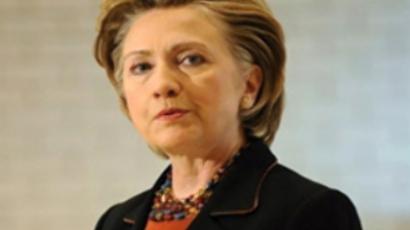Thursday's press review

This Thursday Russian newspapers are glad that no one walked out on the Geneva meeting on the Caucasus; they evaluate the chances for alternative gas pipes to be built around Russia by nations who fear Moscow’s ‘aggressive energy policies’; and they comme
VREMYA NOVOSTEI writes that the main outcome of the first day of negotiations regarding Abkhazia and South Ossetia was the fact that ‘no one walked out of the meeting.’ The paper attributes this quote to a senior member of the Russian delegation. Last time, reminds the paper, everyone was loudly blaming everyone else for the forced non-participation of Abkhazia and South Ossetia while at the beginning of that meeting both these delegations had been present. This time, continues the paper, each delegation was treated equally.
However, says the paper, it was achieved by issuing personal invitations to the participants from the two regions, without mentioning the entity or position and rank. Georgia, the paper says, fears further recognition of South Ossetia and Abkhazia by foreign nations following Russia’s recognition, so Georgia is so far dead-set against recognising South Ossetia and Abkhazia on the badges of their representatives. The paper adds that if this position doesn’t tell on the decisions taken jointly in Geneva this time and if the status of the negotiations is raised to Ministers of Foreign Affairs, the question of representative badges may again become crucial.
NEZAVISIMAYA GAZETA publishes an article by Stanislav Pritchin of Moscow State University’s Department of Sociology and Political Science. He writes that the recent energy summit in the Capital of Azerbaijan, the fourth meeting in this format of countries which are not important foreign trade partners of each other, and only half of which can benefit from the main agenda – oil and gas pipelines from the Caspian region to Europe built to bypass Russia – has shown that some of the participants, like Turkey and Azerbaijan, are quite reluctant to get involved in this anti-Russian agenda.
The paper says it happens not because of ideological influence on them from Moscow but because they already have too many commitments, both non-related and Russian, to risk overstretching their capacity as exporters. For them, writes the academic, friendship against Moscow is not economically feasible. He adds that in his opinion the only reason for such meetings to be organized at all is due to Washington’s initiative to create a south-west buffer zone around the Russian borders and the wish of the EU to lower its dependence on Russian crude oil and gas.
IZVESTIA has an interview with Member of the State Duma Sergey Markov who says that during the G20 summit there were two main models of crisis management suggested to the gathering, both of which didn’t make it in the final document but were extensively discussed behind closed doors and during coffee breaks. One of them, he says, was suggested by the U.S., the other by France.
The U.S. model leaves all market mechanisms of liberal capitalism intact and suggests re-launching the American economy with massive IMF loans, the money of which has been provided to the IMF by China and the Middle East. The perspective donors say that they may consider this offer only if they receive U.S. assets as collateral, with property rights guaranteed by the U.S. The American delegation cannot accept that and retorts that if the U.S. economy loses 3% of its growth rate in the crisis, China and the Middle East, as well as all other major economies, are going to lose up to 15% of theirs.
The French model opts for the creation of an international commission of academics and politicians to review the state of the modern world economy and draw new models of capitalism. Such models, if accepted jointly by the G20, could guarantee the absence of crises entirely. The main idea is to link up the stock market and the financial system as a whole to the real economy, so the financial institutions could be fortified against fluctuations born by speculative trading in stocks. The authors of the French model argue that the American model can only cure the symptoms but not the disease, and that the crisis will return after a period of growth.
Russia, Markov says, in spite of having suggested absolutely correct tactics of joint efforts and financial controls, risks to stay outside the mainstream of decision-making because the Russian suggestions are born by the same economists who spent years promoting liberal capitalism. The MP says Russia needs a more radical approach to crisis management. It should work out innovative plans of action based on new thinking and, first of all, on the fundamental idea that capitalism has to be reformed into a system that can defend itself against such crises in the future.
Evgeny Belenkiy, RT.














